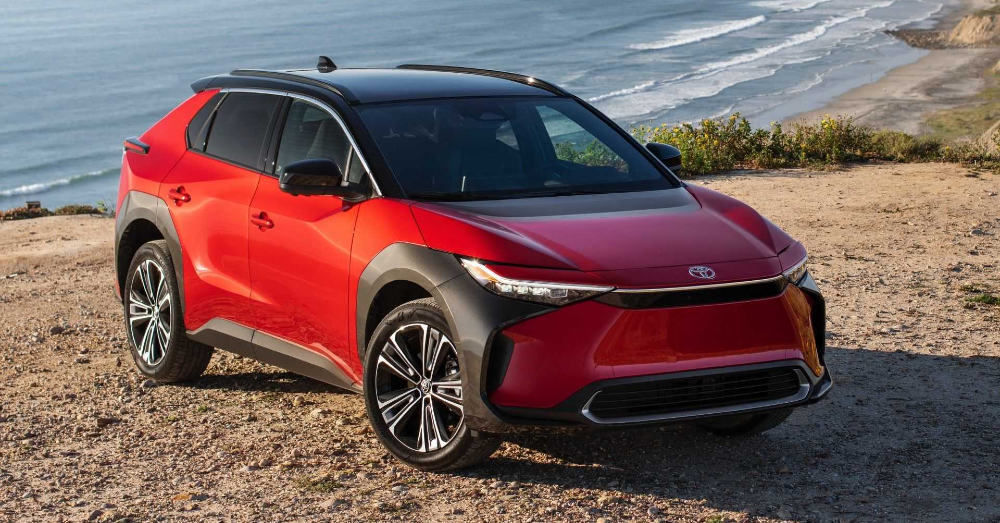A new Toyota battery lab is scheduled to be built in Michigan to aid the company in developing its EV batteries for the future as the next step in Toyota EVs.
For an automaker, spending $48 million is next to nothing, but this is what the new battery lab will cost. Toyota expects this location in Michigan to begin operations in 2025 with its focus on studying the current batteries to make them better. Additionally, the lab engineers will work on new battery configurations for future EVs. Could this be the missing element to Toyota’s EV future?
Greater investments in North America
Toyota has been working toward greater EV investments globally, especially in North America. The new lab will be located west of Detroit in York Township, supporting the manufacturing efforts at the North Carolina and Kentucky Toyota plants. This coincides with plans to build the first US-made electric SUV at the Kentucky facility starting in 2025. This new three-row SUV will use batteries supplied by the Toyota battery plant in North Carolina, which receives an additional $2.1 billion investment (not a drop in the bucket) to ensure a strong Toyota EV presence in North America.
Toyota has always been a bit behind
Toyota has found its way to the head of the automotive table many times over by being last to the market with specific products. They were behind Honda in bringing hybrid models to the road, but the Toyota Prius quickly became the poster child of hybrid vehicles. This new Toyota battery lab will help the company develop the most affordable and longest-lasting batteries in the auto market. At least, that’s what we should expect from the brand that has often led the way in terms of reliability and quality by being the last to the market.
More hybrids with a few EVs tossed in
Toyota is being a little more ambitious than usual about the future of electrification. With its long-standing expertise in hybrid technology, Toyota expects to add this expertise to future EVs. By 2025 Toyota and Lexus will offer an electrified option for every model sold globally. This means an investment of more than $70 billion to create electrified models by 2030. The first step is to utilize hybrid dominance to add electrified assistance in every model before going all-electric with more Toyota and Lexus vehicles. The movement began a few years ago, and we already see new hybrids on the market as each model enters a new generation.
Will the lab help Toyota keep pace?
Although Toyota has never concerned itself with falling behind or being the last to the market, the ripeness of the new EV market certainly increases the pressure felt at the company to create electrified products faster. Toyota continues to lag behind Tesla, GM, and Ford in the United States. Ford is ready to invest $3.5 billion in a battery plant in Marshall, MI, but Toyota could be the only automaker to build an actual battery lab to study the batteries and work toward improving materials and the building of future EV battery packs.
Toyota will fall in line with US requirements
Recent government regulations have been imposed to require automakers to build EVs from materials sourced in North America or partnering countries. Toyota is committed to utilizing locally sourced materials for its future EV batteries, which makes a huge difference in the batteries that will be built and installed in Toyota and Lexus EVs going forward. Meeting these requirements in the United States allows Toyota EV customers to enjoy the benefits of the new federal EV tax credit, which can translate to a $7,500 reduction in owed federal taxes.
What is the Toyota EV future plan
Currently, there are only two fully electric SUVs in the Toyota and Lexus lineups. The Lexus RZ450e and Toyota bZ4X, which both offer good driving ranges and impressive qualities, but not enough to be at the very top of the market. In 2025 we know nearly every model will have either a hybrid or EV version, but by 2026, several additional battery electric vehicles will be part of the Toyota and Lexus global lineups. We don’t know for certain that any of these new models will arrive in the United States, but some should.
The new Toyota battery lab might be the best step forward for any automaker looking for a great way to study electric batteries and make them better. Will other automakers follow suit and build their own versions of the battery lab?
This post may contain affiliate links. Meaning a commission is given should you decide to make a purchase through these links, at no cost to you. All products shown are researched and tested to give an accurate review for you.
